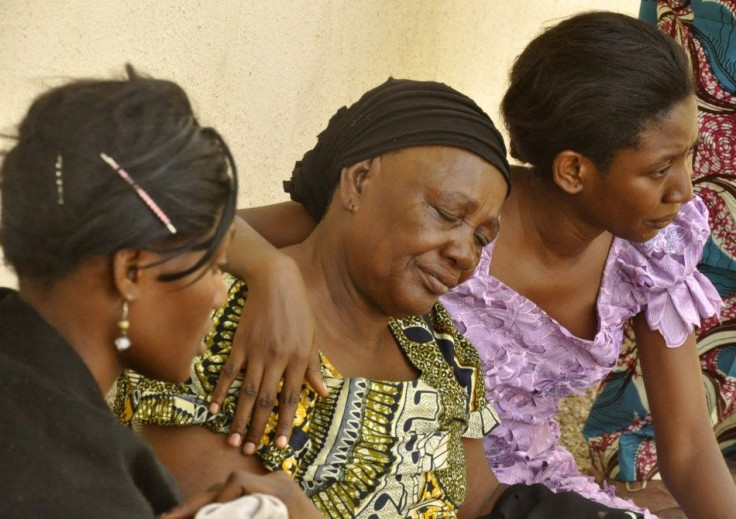Wave Of Fresh Attacks In Nigeria Point To Boko Haram

Another wave of terror across Nigeria over the weekend points to the Islamist rebel group Boko Haram.
In the northeastern Taraba state, a suicide bomber on a motorcycle rammed a police convoy, killing himself and at least 10 others on Monday. Authorities believe the insurgent was targeting state police commissioner Mamman Sule, who was unharmed, but the attack killed three officers and injured 15, according to Nigeria's Daily Trust newspaper.
The convoy was driving through a roadside market in the capital city of Jalingo on its way to Sule's office when it was attacked, injuring a dozen civilians and killing some seven more, although reports vary.
While no group immediately claimed responsibility for the bombings in Taraba, the method of attack was similar to others carried out by Boko Haram. The rebel group often targets police and local government officials, and is largely active in Nigeria's Muslim north, although Monday's incidents were the first to happen in Taraba.
For now, we are not mentioning anybody as suspects, Ibiang Mbaseki told Agence France-Presse. An investigation will be carried out to determine who was responsible.
Boko Haram member and alleged mastermind of the deadly Christmas Day church bombings in Abuja, Kabiru Sokoto, was arrested in Taraba state after escaping from prison in January.
The weekend's deadliest attacks occurred on Sunday in the city of Kano, the current home base for Boko Haram, where 21 people were killed in coordinated assaults on church services.
At Bayero University Kano, as many as 20 men on motorcycles armed with grenades, improvised explosive devices and AK-47 rifles stormed into two campus buildings -- a lecture hall and a gym -- being used for worship, and opened fire. Eyewitnesses told AllAfrica that at least 20 people were killed, including a number of professors, while the official death toll has been recorded at seven.
When police and local security responded to the attacks, the gunmen engaged in a running gun battle, sending students fleeing and sparking wild reports of car bombs and explosions.
Nigerian President Goodluck Jonathan expressed his deep regret over the incident, calling it an utterly heinous descent to new depths of calumny by the perpetrators of the attack on one of the nation's citadels of academic endeavor and its members.
Jonathan has tried to combat Boko Haram through both force and diplomacy, but so far with little effect. Over the past year, Boko Haram, whose name translates roughly to Western education is a sin, has engaged in a mission to turn all of Nigeria into an Islamic state. The country is split evenly between Christian and Muslim, who dominate the south and north, respectively. More than a thousand people have been killed in the last 16 months, and the violence is not abating.
Boko Haram regularly targets the government and civilians in places such as beer halls and markets, and has even targeted church-goers. After the Christmas bombings, which killed 50, there were retaliatory attacks against Islamic schools in the south, igniting fears of a religious or civil war. However, over the following months, many Nigerians have united in their condemnation of Boko Haram.
“We don’t encourage Christians to rise up in attack. Our best weapon of defense is prayer,” chairman of the Kano State chapter of the Christian Association of Nigeria, Ransome Bello, said on Sunday.
After Sunday's Bayero University attacks, the National Association of Nigerian Students threatened to shut down campuses across the country unless the government took concrete steps to address Boko Haram's relentless terrorism.
“This act is not only condemnable, it has also increased our demand that the federal government should immediately take a concrete step in addressing the increasing wave of terrorism in Nigeria, the group stated, according to the Tribune.
“Without mincing words, the NANS in the next few days shall not hesitate to order a total boycott on all Nigerian campuses until the issue of the security of lives and properties is guaranteed on our campuses. We cannot continue to look at our future being wasted.
On Sunday, gunmen also attacked a church in Maiduguri, the capital of Borno state, killing four.
Boko Haram who were six in number came in a Volkswagen Golf car and shot the pastor and three others while they were about to administer the Holy Communion to worshippers, Maiduguri police spokesman Samuel Tizhe told Reuters.
© Copyright IBTimes 2024. All rights reserved.




















